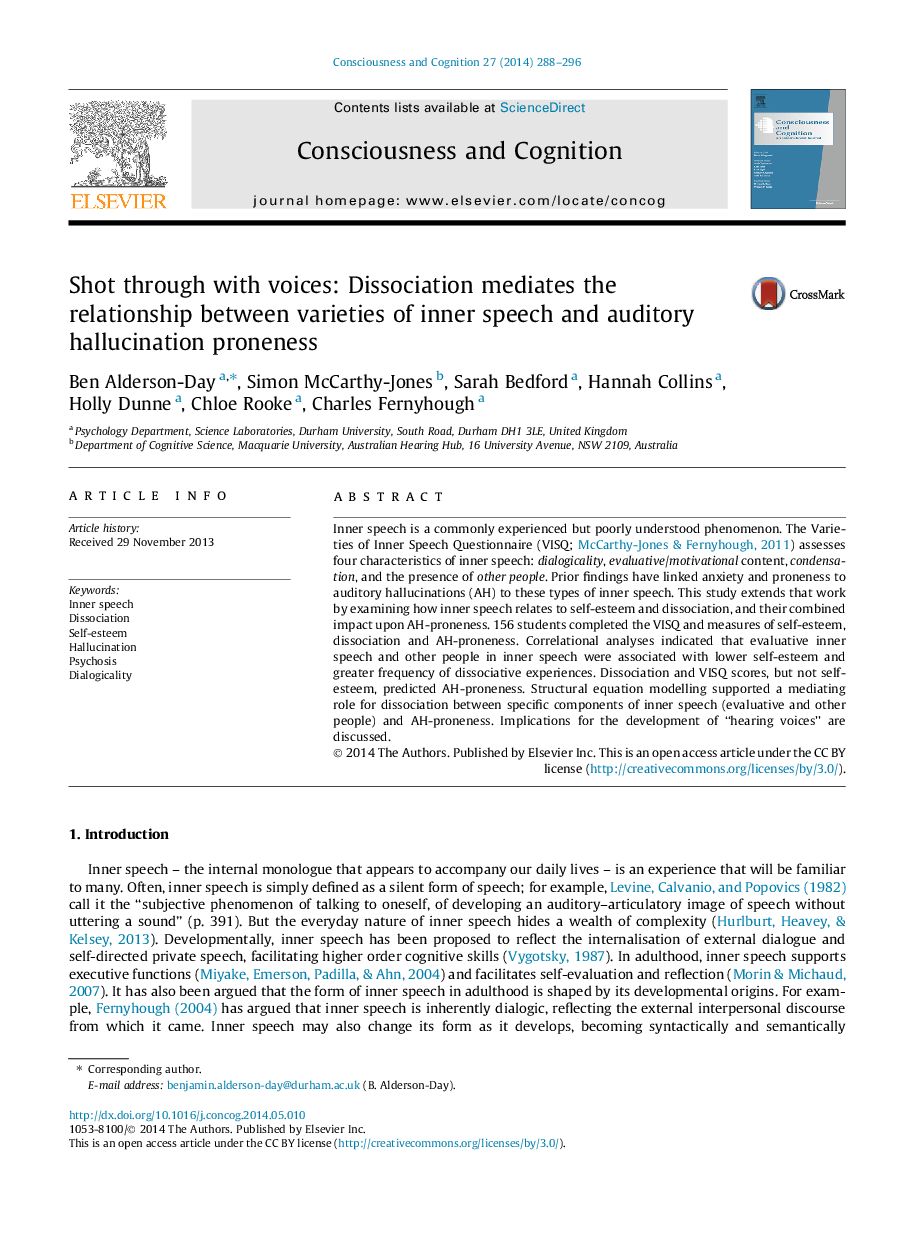| Article ID | Journal | Published Year | Pages | File Type |
|---|---|---|---|---|
| 7290046 | Consciousness and Cognition | 2014 | 9 Pages |
Abstract
Inner speech is a commonly experienced but poorly understood phenomenon. The Varieties of Inner Speech Questionnaire (VISQ; McCarthy-Jones & Fernyhough, 2011) assesses four characteristics of inner speech: dialogicality, evaluative/motivational content, condensation, and the presence of other people. Prior findings have linked anxiety and proneness to auditory hallucinations (AH) to these types of inner speech. This study extends that work by examining how inner speech relates to self-esteem and dissociation, and their combined impact upon AH-proneness. 156 students completed the VISQ and measures of self-esteem, dissociation and AH-proneness. Correlational analyses indicated that evaluative inner speech and other people in inner speech were associated with lower self-esteem and greater frequency of dissociative experiences. Dissociation and VISQ scores, but not self-esteem, predicted AH-proneness. Structural equation modelling supported a mediating role for dissociation between specific components of inner speech (evaluative and other people) and AH-proneness. Implications for the development of “hearing voices” are discussed.
Related Topics
Life Sciences
Neuroscience
Cognitive Neuroscience
Authors
Ben Alderson-Day, Simon McCarthy-Jones, Sarah Bedford, Hannah Collins, Holly Dunne, Chloe Rooke, Charles Fernyhough,
